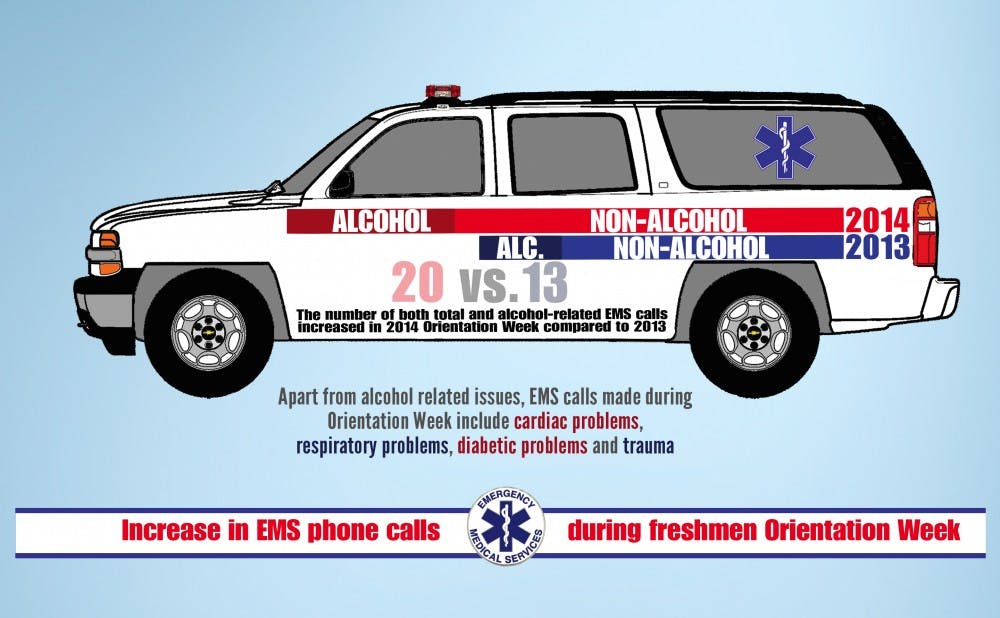The number of Orientation Week calls to Duke Emergency Medical Services increased from last year—20 phone calls, compared to last year's 13.
Six of the 20 EMS calls were related to alcohol consumption, said Director of Duke EMS Krishan Sivaraj, a senior. Of the remaining 14 calls, 12 were known to be non-alcohol-related, and it was unclear whether the other two phone calls were alcohol-related or not.
Duke EMS has made efforts to form stronger connections with residence assistants and housing staff this year, Sivaraj noted.
“Something we have been starting is becoming more connected with the RA staff and [Housing, Dining and Residence Life,” Sivaraj said. “I think that has led to better patient care, because a lot of the time it’s the RA and housing staff that are activating the EMS for residents.”
The number of alcohol-related EMS calls doubled from 2013, when three calls were made because of alcohol overconsumption. In 2012, seven of 13 calls were alcohol-related.
Of this year's 20 Duke EMS calls, 15 resulted in students being transferred to a local hospital, four of which were linked to alcohol-related problems. During 2013 Orientation Week, nine hospital transfers were made.
Duke EMS only responds to calls made on campus, Sivaraj noted. Students who call for medical services while off-campus can receive aid from Durham County Emergency Medical Services.
A total of six students were transported to the emergency room for alcohol-related incidents during orientation week, including calls made both to Duke EMS and Durham County EMS, said Stephen Bryan, associate dean of students and director of the Office of Student Conduct.
As part of the increased collaboration between Duke EMS and housing staff, EMS members participated in RA training this year, Sivaraj said.
“We…[trained] the RAs for when we expect them to call, when we expect them not to call, what we want them to do, that sort of thing,” Sivaraj said. “That’s a policy change we put in that’s been beneficial.”
Sivaraj added that Duke EMS responds to a variety of emergency phone calls during the day and night on campus, and that alcohol-related incidents were only a small proportion of their job.
“[Among the 20 calls made during orientation week] we had cardiac problems, respiratory problems, a couple of our patients present came with diabetic problems,” Sivaraj said.
Sivaraj said he encourages freshmen to use the resources on campus and to be unafraid of calling Duke EMS when help is needed.
“There are [going to be] a lot of parties and a lot of potentially unsafe situations,” he said. “Just because they call the Duke EMS doesn’t necessarily mean that they will be taken to Duke Hospital, and Duke EMS is completely free. It’s better for them to have called and be okay, than for them to not call and not be okay.”
Get The Chronicle straight to your inbox
Signup for our weekly newsletter. Cancel at any time.

